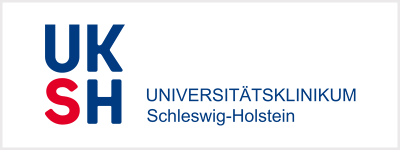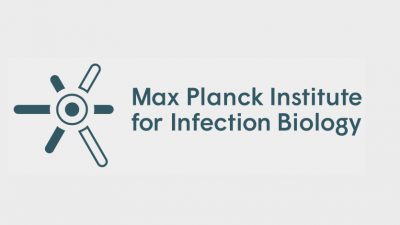
Principal Investigator
Thomas F. Meyer Laboratory
University Hospital Schleswig-Holstein, Germany
Christian Albrecht University of Kiel, Germany
Max Planck Institute for Infection Biology, Berlin, Germany
Charité University Medicine, Berlin, Germany



Thomas F. Meyer was born in August 7th, 1952 in Mannheim, Germany. He started his career at the Max Planck Institute (MPI) for Medical Research in Heidelberg as a Ph.D. student working on the in vitro replication of bacteriophage fd. As a postdoctoral fellow in 1980, he became interested in mobile genetic elements and pioneered investigations into the molecular basis of pilin antigenic variation in Neisseria. The research was conducted with Dr. Maggie So at the Cold Spring Harbor Laboratory and the Public Research Institute, New York.
In 1982, back in Heidelberg as a staff scientist at the Centre for Molecular Biology (ZMBH) at the Heidelberg University, he discovered the first example of variable gene expression based on the variation of short repeats (slipped strand mispairing). After moving to the MPI for Biology, Tübingen, he discovered neisserial IgA protease as the first example of the large family of bacterial autotransporter proteins and explored its secretory pathway.
In the late 80’s, his focus shifted gradually towards the pathogen-host cell interface, where he discovered central adhesins and host cell receptors crucial for infection with Neisseria. As appointed Director of the Department of Infection Biology in Tübingen (1990) and Founding Director of the new Max Planck Institute for Infection Biology in Berlin (1994), he continued to explore crucial aspects of pathogen-host cell interactions using Neisseria, Chlamydia and Helicobacter as model systems.
After relocating to the MPI’s new purpose-built facilities in Berlin in 2001, Dr. Meyer served as the director of the Molecular Biology Department. He developed large-scale applications of short interfering RNAs (siRNA) for the analysis of human gene function during infection. Alongside other projects, he coordinated the EU FP6 RIGHT project on the application of RNAi for human therapy (2005 to 2009). In 2020, he retired from Max Planck Institute for Infection Biology, retaining an Emeritus title, and relocated to the Kiel Campus of the University Hospital Schleswig Holstein. He is now a Senior Professor at the Institute of Clinical Molecular Biology, Christian Albrecht University of Kiel.
Thomas Meyer holds also professorships at the Charité University Medicine and the Humboldt University (both Berlin) and he is a member of EMBO and the German Academy of Sciences Leopoldina. His current research interests have moved to focus on the manifestation of heritable infection signatures and the sequels of long-term chronic infection, such as cancer. In order to address these questions, he has been a forerunner in the development of advanced primary cell models, such as organoids, as models for human infections.
1980
Carl Clemm – Carl Haas – Research Award, University of Heidelberg
1981
Otto Hahn Medal, Max Planck Society
1986
Heinz Maier Leibnitz Award, Federal Minister for Science and Education
1989
Main award, Foundation of the German Society for Hygiene and Microbiology
Elected Member, European Molecular Biology Organisation (EMBO)
1993
Max Planck Award of the Alexander von Humboldt Organisation for international collaboration
1996
Aronson Award of the Federal State of Berlin
2001
Member of the National Academy of Germany Leopoldina
2004
Honorary Professor at Humboldt University Berlin
2005
Honorary Professor at Charité University Medicine Berlin
2016
Elected Member European Academy of Microbiology
2017
Honorary Professor at Zhengzhou University China
2019
Honorary Professor at Jilin University China
2020
Robert Koch Medal
Born August 07, 1952, Mannheim, Germany
h-index 2021: 83 (Web of Science) or 104 (Google Scholar)
1971-1979
Study of Biology at the University of Heidelberg; 1977 Diploma, 1979 PhD (summa cum laude)
1979-1980
Junior scientist, Max Planck Institute for Medical Research, Department of Molecular Biology, Heidelberg.
1980-1981
Research fellow of the German Research Council (DFG) at Cold Spring Harbor Laboratory
1981-1982
Visiting scientist at the Public Health Research Institute of the City of New York
1982-1983
Staff scientist at the Max Planck Institute for Medical Research, Heidelberg
1983-1985
Group leader at the Centre for Molecular Biology at Heidelberg University (ZMBH)
1985-1990
Head of a research unit (C3 with tenure) at the Max Planck Institute for Biology, Tübingen
1990-2006
Professor (extern.) at University of Tübingen, Biology Faculty
1990-2000
Member of the Max Planck Institute for Biology and Director of the Department of Molecular Biology, Tübingen
1994-2020
Founding Director of the Max Planck Institute for Infection Biology, Berlin; Head of the Department of Molecular Biology
2003-2005; 2009-2011; 2015-2017
Managing Director, Max Planck Institute for Infection Biology, Berlin
2009
Foundation, Steinbeis Innovation Center for Systems Biomedicine (non-profit org.)
2018-present
Senior Professor at Charité University Medicine Berlin
2020-present
Emeritus Director of the Max Planck Institute for Infection Biology, Berlin
2020-present
Senior Professor at University of Kiel (Christian-Albrechts-Universität zu Kiel)
Prof. Dr. Klaus Geider, Julius Kühn-Institut
First Name Hoffmann, Affiliation
Prof. Dr. Heinz Schaller, University of Heidelberg, RIP
Prof. Magdalene Yh So, University of Arizona
Prof. Richard P. Novick, NYU
First Name Braun, Affiliation
First Name Henning, Affiliation